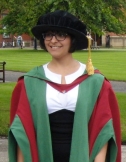George Despotidis
The word Greece nowadays is connected to the word debt, and it’s true – Greece owes a lot of money to a lot of people, banks and countries.
Until recently, public employees in Greece were not actually evaluated and could not be fired. It was a job for life and their salary would never decrease – only increase – as the years went by. And so this meant that everyone wanted to become a public employee.
Parties governing Greece from 1974 onwards, the year when democracy was restored and the constitution of Greece changed to a parliamentary democracy, knew this. They were the ones that voted for this legislation. So what governments did was to exchange jobs for votes. This type of relationship between citizens and politicians is called ‘clientelism’. Citizens knew that this was a corrupted relationship but they kept voting for the same people since they were also gaining from it.
The problem was that clientelism was creating a huge, inefficient and ineffective public sector consisting of untrained and unskilled personnel. The solution to this was then to outsource jobs to the private sector, but even then outsourcing was based on clientelism. As a result Greece’s budget deficit grew.
How did Greek governments cover these budget deficits? By borrowing money; but because almost every year Greece’s budget was in deficit, it needed more and more loans, not only to cover its deficits but to pay interest for the previous loans. Imagine a procedure like this happening for more than 30 years from many public authorities that managed public money. This is how Greece’s debt was created.
However, Greek governments didn’t seem to care since they were able to borrow money. Especially after Greece joined the EU in 1981 and the Eurozone in 2001, borrowing became easier. Everything was operating smoothly because deficits were covered by loans and interest was covered by more loans.
The true scale of Greek debt came to surface in the 2008 financial crises. Greece was not able to borrow money because its creditability was characterized as excessively low since possible lenders, given the world financial situation, wouldn’t risk their money in Greece as they had done before.
At this point an economist would discuss whether Greece should have gotten out of the Eurozone; about the IMF and the EU coming to Greece and applying memorandums so that lenders could start getting their money back; and by analysing which measures could help Greece to reduce its debt. But I am not an economist and think that focusing only on what needs to be done in order for Greece’s lenders to get their money back might lead to more debt creation all over again.
Rather, what I am interested in is the relationship between citizens and politicians that seems to be the starting point of Greece’s problem.
Why is this relationship important? Clientelism, as previously described, requires money which the public sector doesn’t have. As such, this clientelism has started to break down. Neither politicians nor citizens can gain from this relationship anymore, and it might be time for a new relationship to be established. Of course, effort and measures need to be taken to address financial concerns, but research on the relationship between politicians and citizens – the starting point of the problem – is also necessary.
My proposed possible solution for re-establishing this relationship is citizen participation. Participation can bring citizens and politicians closer than they currently are and can create a space for them to meet and interact. This may lead citizens to rebuild their trust in politicians, if they realise that politicians care about what they have to say.
Yet this needs to be a two-way procedure. Politicians also must realise that citizens can help and contribute to policy formation and that they should be allowed to participate in these processed. This might also lead to a rethinking of the identities of ‘citizen’ and ‘politician’. Not only do citizens need to change their beliefs about politicians, but politicians too need to change their beliefs about citizens – and participation might be a way to achieve this.
Citizens and politicians in Greece need to connect and this is the time to establish a positive relationship. The relationship established 30-40 years ago was neither healthy nor democratic. My research considers whether citizen participation can help establish a new relationship and which forms of participation are perceived to be more significant. However, at this stage it is already clear that effort is needed from both sides – otherwise citizenship participation will be used as a very undemocratic tool despite its democratic principles, and will lead to the manipulation of citizens by politicians.
George Despotidis is a first year Doctoral Researcher in INLOGOV. He completed an MSc in Public Management, also at INLOGOV, in 2012. His research interests include citizen involvement in policy-making, and decision-making processes with a specific focus on citizen participation. Follow him on Twitter here.


